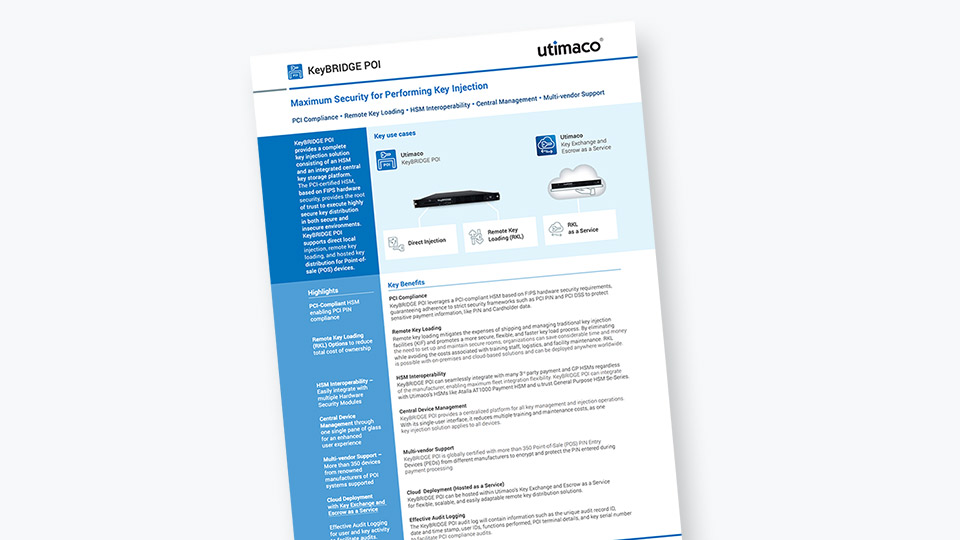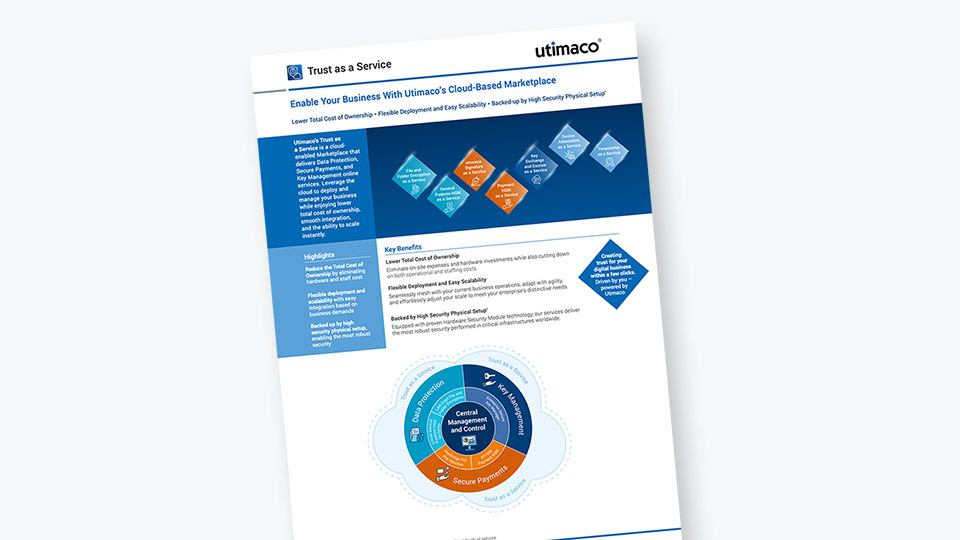Encryption serves as the backbone of POS security, ensuring that data remains unreadable to attackers
Payment security is a key concern for merchants and financial institutions and their consumers. As cashless transactions rise, protecting sensitive payment data at the point of sale (POS) becomes more crucial. This post covers why POS security matters, how encryption and cryptographic keys protect transactions, and the steps decision-makers and IT teams can take to reduce risks.
The Current Threat Landscape for POS Security
POS systems are at the heart of retail and eCommerce and face real risks. In 2024, malicious attacks accounted for 55% of all data breaches, with the global average breach cost rising to $4.88 million. The threat landscape is evolving—malware attacks often remain undetected for weeks, impacting both retailers and customers.
Key Facts:
- POS terminal numbers keep increasing due to higher digital payment adoption, though the most recent global market figures should be checked for the latest statistics.
- Cyberattacks target both online and offline terminals.
- Data left unencrypted in POS systems or injection facilities create vulnerabilities with financial and reputational impacts.
Anatomy of POS Vulnerabilities
Offline POS terminals are not immune to threats. Malware can infiltrate through infected hardware or outdated software, with stolen data later transmitted when a system is reconnected to a network. While offline terminals are especially susceptible to physical tampering and malware introduced through removable storage, Online POS terminals rather face risks from network-based attack vectors. To mitigate these risks for both POS terminal types, strong encryption and key injection using robust cryptographic keys is essential.
Read more about Utimaco's Payment Key Injection solutions
Modernizing POS Security: Why Encrypted Keys Matter
How Cryptographic Keys Secure Every Transaction
End-to-end encryption ensures that customer data is protected from the initial tap or swipe through payment processing. Authentication mechanisms, powered by cryptographic keys, verify that terminals are genuine and trusted to relay payment data. Using encrypted solutions helps organizations achieve PCI compliance and aligns with industry security best practice. Importantly, transactions processed offline are also encrypted and uploaded securely as soon as the system reconnects.
DEK vs. KEK – Why Data Encryption alone is not enough
Legacy POS systems often load and store Data Encryption Keys (DEKs) in plain text, making it possible to expose all customer data protected by those keys in case of a breach caused by targeted attacks or further threats, like human error. Even with strict security procedures, not all threats can be entirely eliminated.
That is why it is highly recommended to encrypt the keys used to encrypt data. By utilizing Key Encrypting Keys (KEK) for access, the keys - and with that the data protected by those keys – remain useless without the KEK. This provides a powerful additional layer of defense, protecting data even if the DEKs are stolen.
Actionable Steps to Secure Your POS Environment
There are several key steps that organizations can take to secure their POS environments. Besides the well-known basics such as regular software and firmware patches, there are four major tasks you should not miss to check off from your list:
- Software and Firmware Updates
Keeping all systems updated through regular software and firmware patches is critical practice. - End-to-End Encryption
Deploying end-to-end encryption (E2EE) protects data both in transit and at rest. - Encryption Keys and Encrypted Key Management
Utilizing Key Encrypting Keys (KEK) and adopting encrypted key management is essential for replacing legacy key handling processes. - Remote Key Injection
Utilizing up-to-date remote key injection solutions that utilize the strongest cryptographic mechanisms for key generation, injection and storage, can significantly enhance security for cashless payments at POS terminals while reducing manual errors and enabling greater scalability.
The Role of Secure Key Injection for POS Security
As laid out before, reliable E2E remote injection of encrypted crypto keys is inevitable for secure, reliable cashless payment transactions at the POS.
Utilizing the right solution with all the security benefits while enabling smooth and flexible operations for merchants is crucial. With its key injection solutions specialized for POS use cases, Utimaco provides the highest security for PIN and transaction processing whether as on-premises installation or delivered as a Service.
KeyBRIDGE POI is Utimaco’s state-of-the-art key injection appliance provides a complete and central solution that is capable of integrating with more than 350 different POI devices. A strong integration between KeyBRIDGE POI solution or Managed Service and POI devices ensures secure payment transactions and trusted user experience
POS Key Generation as a Service is a PCI-PIN certified key custodian service providing trusted POS crypto key operations. It enables secure key generation, distribution, and storage executed by trained experts acting as key custodians in Utimaco’s data centers.
Wrapping it up: Key Takeaways
- Modern POS systems process sensitive payment data and are frequent cyberattack targets.
- Encryption is essential for keeping payment data safe at every stage.
- Upgrading to encrypted key management and leveraging solutions like Utimaco’s KeyBRIDGE POI or POS Key Generation Service to support compliance and security.
Utimaco is dedicated to safeguarding payment transactions with proven key management solutions, expert support, and flexible technology—ready for the demands of modern retail.
Want to protect your POS payments?
Contact Utimaco’s experts today and see how our solutions can secure your transactions and reputation.








